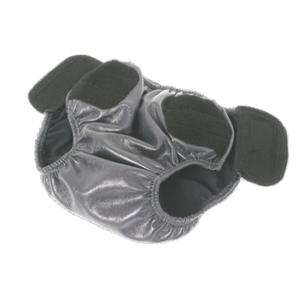What is male incontinence? What causes men's incontinence?
Unexpected bladder leaks
Urinary incontinence means losing urine when you don't expect to, but there are actually seven different types of incontinence.
Men's incontinence can be a short term or long term problem depending on the circumstances.
What causes men's incontinence?
Prostate enlargement, urinary tract infections, Prior pelvic surgeries (bowel resections, prostatectomy), neurological illnesses (Multiple sclerosis, diabetes or stroke) and advanced aging are some of the common causes of urinary incontinence in men. The most common type of incontinence that effect men is overflow incontinence due to the enlargement of the prostate with age. When the prostate gland becomes enlarged it may squeeze the urethra and affect urinary flow.
Seven Types of Incontinence
Stress incontinence - (Also known as light bladder loss) Occurs when a small amount of urine is released when stress is put on the body including sneezing, laughing, coughing or other movements that put pressure on the bladder. It is common in men who have had prostate surgery.
Urge incontinence – When the sudden need or urge to urinate occurs, caused by overactive nerves controlling the bladder. When someone has urge incontinence, the bladder can release a small or large amount of fluid. Urge incontinence can occur while sleeping, after drinking a small amount of water, from touching water or when a individual hears the sound of running water.
Mixed incontinence – Symptoms of both urge and stress incontinence occurs simultaneously. Most people suffer from mixed incontinence and it is more common in older women.
Overflow incontinence – The involuntary release of urine when the bladder is full without any urge to urinate. Occurring in individuals with a bladder outlet obstruction or when the muscle used to release urine weakens. This form of incontinence is more common in men due to an enlarged prostate squeezing the urethra.
Overactive bladder – Nerve signals between the brain and bladder miscommunication, telling the bladder to empty when it is not full. Over active bladder may also occur when the bladder muscles are too active.
Functional incontinence – An individual is aware that they need to empty their bladder but may not be able to make it to the restroom due to a medical problem that results in difficulty in moving or communicating their needs with others. Functional incontinence is more common in the elderly.
Fecal incontinence – The involuntary loss of bowel contents. Common causes for men of fecal incontinence can range anorectal surgery to altered bowel habits (IBS, Crohn's disease, food intolerance).
Your Prostate and Male Incontinence
The prostate is a small walnut shaped gland in men and is part of the reproductive system. It sits below the bladder and in front of the rectum, surrounding the urethra. The urethra is the tube that carries urine out of the bladder through the penis.
The prostate gland enlarges with age and may squeeze the urethra, causing problems with passing urine. An infection or a tumor can also cause the prostate to enlarge. Men may show start showing signs of urinary issues as early as their 30's. It is important to be aware of any symptoms that might indicate an issue with your prostate.
Here are some urinary symptoms you should be aware of:
- Passing more urine during the day than normal
- An urgent need to pass urine
- Less urine flow
- Burning when you pass urine
- Needing to get up multiple times during the night to pass urine
If you are experiencing some of these symptoms, then it is time for you to talk to your doctor. Most prostate changes are normal and are a part of aging. Don't let these changes scare you, most prostate changes are not cancer but it is always important to have yourself checked.
Prostate cancer is the most common cancer in Canadian men after skin cancer. A Radical Prostatectomy will most likely be performed to move the prostate gland, as well as tissue from the surrounding area. In order to remove the prostate gland the surgeon must cut the urethra and later reconnect it to the bladder causing urinary incontinence in the patient. There is no way of identifying the severity of incontinence resulting from surgery, but in general up to half of the men experience occasional dribbling up to a year or more after surgery.
Many people who experience incontinence avoid any social situations in fear of potentially losing control of their bladder or bowel and the associated embarrassment if that occurs.
You are not alone. Urinary incontinence is more common in women but more than five million men suffer from some form of incontinence. Men who experience incontinence avoid social situations in fear of potentially losing control of their bladder or bowel and the associated embarrassment if that occurs.
Quality of life can decrease as studies have shown that the more severe incontinence is, the more significant impact on an individual's life.
Don't let incontinence stop you from living the life you deserve
Men in Canada, across ages find themselves having to deal with unexpected bladder or bowel leaks. MyLiberty.Life can help - we offer a wide range of men's incontinence products and brands, and we ship to your home in discrete packaging. No worries, no limits.





